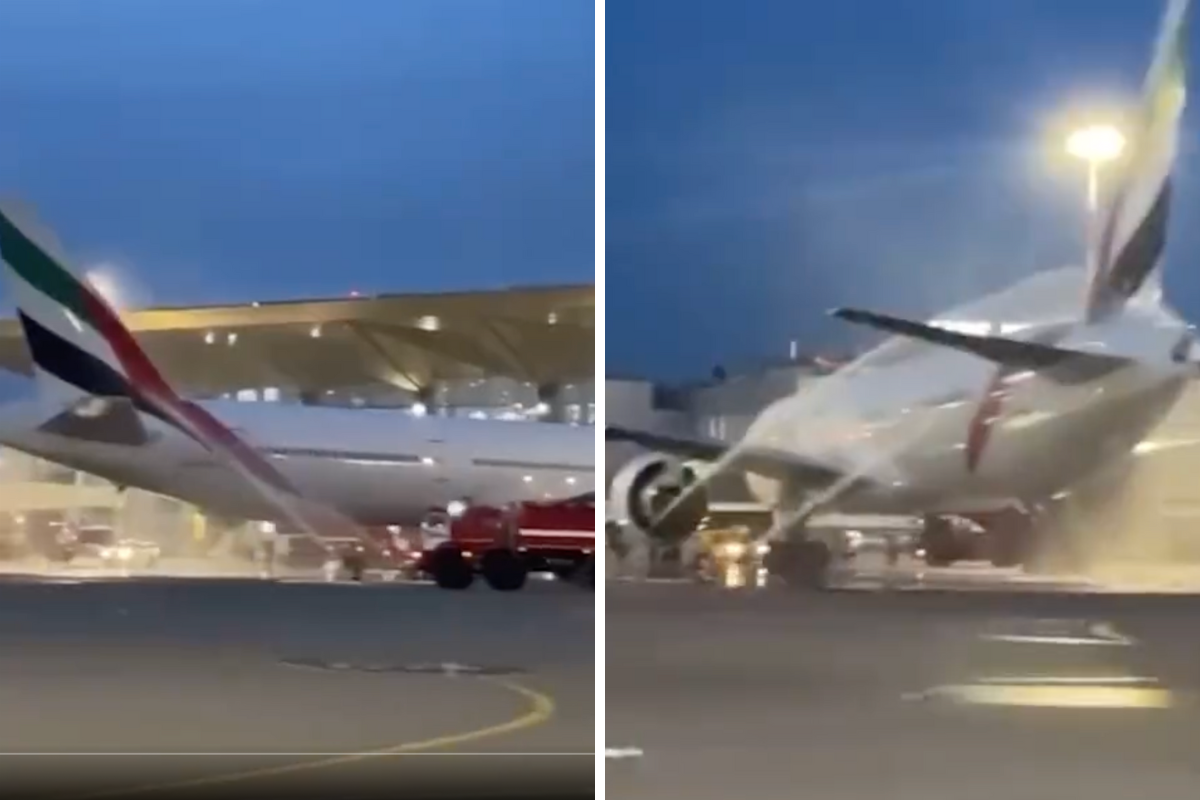
Firefighters at St Petersburg International Airport in Russia responded to an apparent ‘fire’ onboard an Emirates Boeing 777-300, which was preparing to depart for Dubai on Friday night.
A video shared on social media showed emergency responders hosing down the tailfin and back half of the aircraft following what had been initially reported as an engine fire.
Russia: Emirates Boeing 777's engine caught fire as it was preparing to take off to Dubai from Pulkovo airport in Saint Petersburg. If you take a look at Emirates airlines' track record, they have a history of their planes catching fire through the years. pic.twitter.com/nAGieAyCjR
— Igor Sushko (@igorsushko) June 30, 2023
It would appear that the incident was isolated to the plane’s auxiliary power unit (APU), which is located in the tail cone of the aircraft. The APU provides power to the plane when the main engines haven’t yet been switched on.
APUs are small turbine engines that are commonly used on the ground to provide electrical power, air conditioning systems and hydraulics to the aircraft and are started via an onboard battery pack.
The APU is also used to start the main aircraft engines, although planes can still be legally flown in the event of an APU failure – it just makes things a little harder.
For example, electrical power and air conditioning, while not as good, can be supplied by ground-based systems, while mobile air-start systems can be used to get the main engines operating.
In fact, in an attempt to reduce emissions, many airlines encourage pilots to rely on ground-based systems rather than the APU, although this is very much dependent on the state of airport infrastructure.
Emirates didn’t immediately respond to a request for comment, but the 16-year-old Boeing 777-300 operating as flight EK176, departed St Petersburg nearly six hours late on Saturday morning.
The issue could have been as simple as harmless but dramatic-looking smokey exhaust, although the incident will once again raise questions about the risk of operating Western-built aircraft in Russia.
Russia is running low on spare parts due to US and European sanctions, and Emirates, like other airlines still operating in Russia, is technically forbidden from importing spare parts should one of its planes suffer a mechanical issue in the country.
Mateusz Maszczynski honed his skills as an international flight attendant at the most prominent airline in the Middle East and has been flying ever since... most recently for a well known European airline. Matt is passionate about the aviation industry and has become an expert in passenger experience and human-centric stories. Always keeping an ear close to the ground, Matt's industry insights, analysis and news coverage is frequently relied upon by some of the biggest names in journalism.







